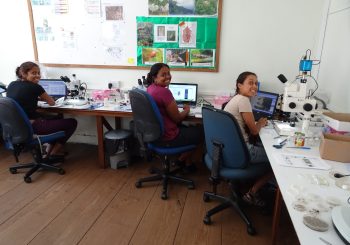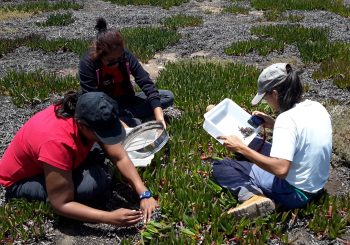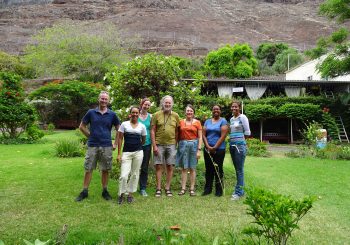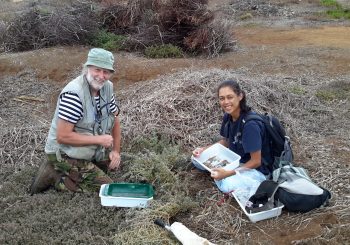-
Celebrating creepy crawlies: Liza Fowler
Posted on March 7, 2018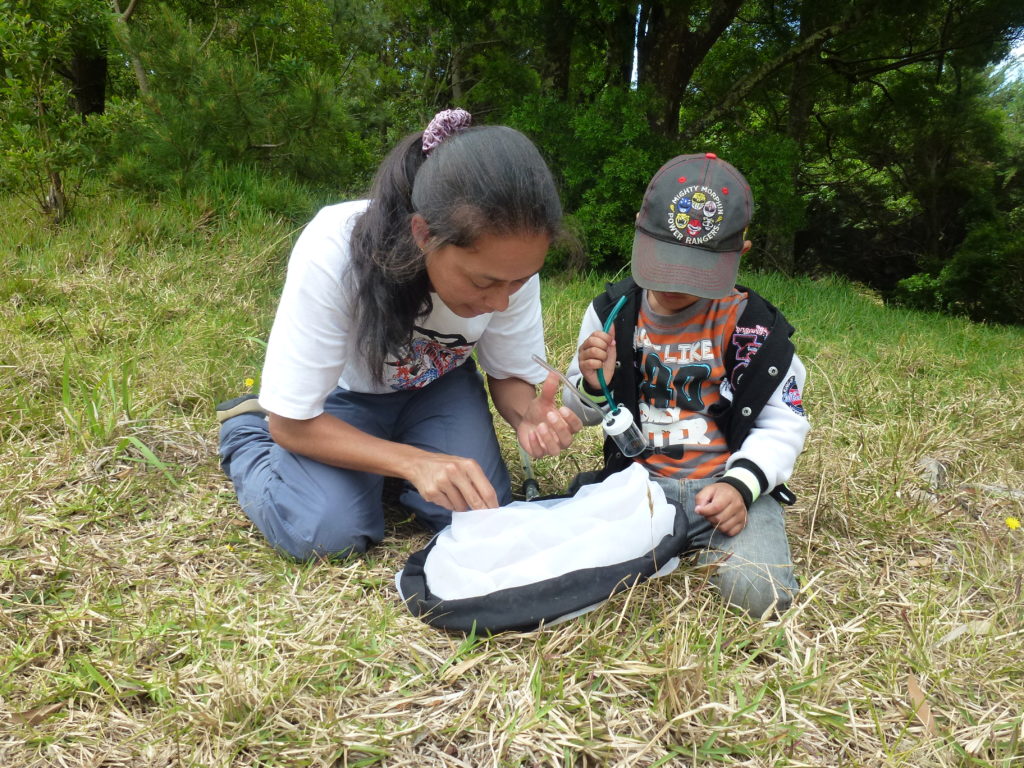 Liza Fowler, Invertebrate Education and Project Officer, St Helena National Trust
Liza Fowler, Invertebrate Education and Project Officer, St Helena National Trust“The bug science team at the Trust has managed to intrigue non-bug lovers as well as those already interested in creepy crawlies, and hopefully this will inspire others to continue the good conservation work relating to invertebrates through future generations.”
What is your job? My name is Liza Fowler and I am the Invertebrate Education and Project Officer working on the Darwin funded “Securing the future for St Helena’s endemic invertebrates” or “The Survey” Project for short on St Helena Island.
How long have you been working for your organisation?
This is my fifth year with the St Helena National Trust, I began my career through the Darwin Apprentice scheme with the “Increasing local capacity to conserve St Helena’s threatened biodiversity project”, then went on to work as the Invertebrate Education Officer on the “Laying the Foundation for Invertebrate Conservation on St Helena project” (“Bugs on the Brink” for short), and now I am currently working on my third project, the Darwin project “Securing the future for St Helena’s endemic invertebrates”.
What inspires you most about what you do?
One of the most inspiring areas of my job is delivering my invertebrate knowledge to others. I have delivered invertebrate awareness and education into our primary schools, secondary school, Forest School and public events. I have created an Invertebrate Education Pack for our teachers to continue invertebrate awareness in the curriculum. The bug science team at the Trust has managed to intrigue non-bug lovers as well as those already interested in creepy crawlies, and hopefully this will inspire others to continue the good conservation work relating to invertebrates through future generations.
Why do you think your work is so important?
I believe that creepy crawlies are much overlooked, they may be very small but they are undertaking great jobs in our environment. Without the decomposers we would be knees deep in poo, without pollinates we wouldn’t have food, and in general they tell us how healthy our environments is, and many haven’t even been studied yet.
What’s it like working as a woman in your organisation?
Overall the Trust is a mixture of females and males and it is a great working environment to be in. The bug team currently consist of all women and we all have a great sense of humour, so it’s never a dull moment because someone is always cracking a joke. It is also well balanced as we are never in the office for long periods of time, and we are always working externally with others, whether it is with visiting experts, education in our schools and events or just giving advice to other organisation.
Do you think the industry you work in has changed over the last 100 years for women?
Yes it has changed, as female entomologists used to be overlooked or not given their full recognition. Today if there are women involved in entomology expeditions or new discovery their names will live on in history.
What question would you like to ask another inspiration woman from one of our international organisations?
I would like to ask the ladies of other international organisations, what inspires you to save our planet from species depletion and is it working for you?
I would also like to say to everyone out there no matter how big or how small our conservation work is we are all making a difference.
What is the St Helena National Trust?
The St Helena National Trust aims to preserve the island’s environmental and cultural heritage. It was founded on 22 May 2002, the 500th anniversary of Saint Helena’s discovery.
The Trust’s activities include restoring the island’s fragile Gumwood forests, conserving the endemic Wirebird, restoring original habitat, promoting the protection of the historic buildings and fortifications, and educating and training local people.It relies on the support of volunteers and the financial support of well-wishers.
The objectives of the St Helena National Trust are:
- To promote the appreciation, protection and enhancement of St Helena’s unique environmental and culture heritage.
- To acquire and hold in perpetuity land of natural beauty or buildings and objects of historic or cultural interest for the benefit of people today and of future generations.
- To give the people of St Helena a stake in the future of their unique environmental and cultural heritage.
- To provide opportunities for enjoyment, education, recreation and spiritual refreshment.

 44 (0)20 7824 7157
44 (0)20 7824 7157